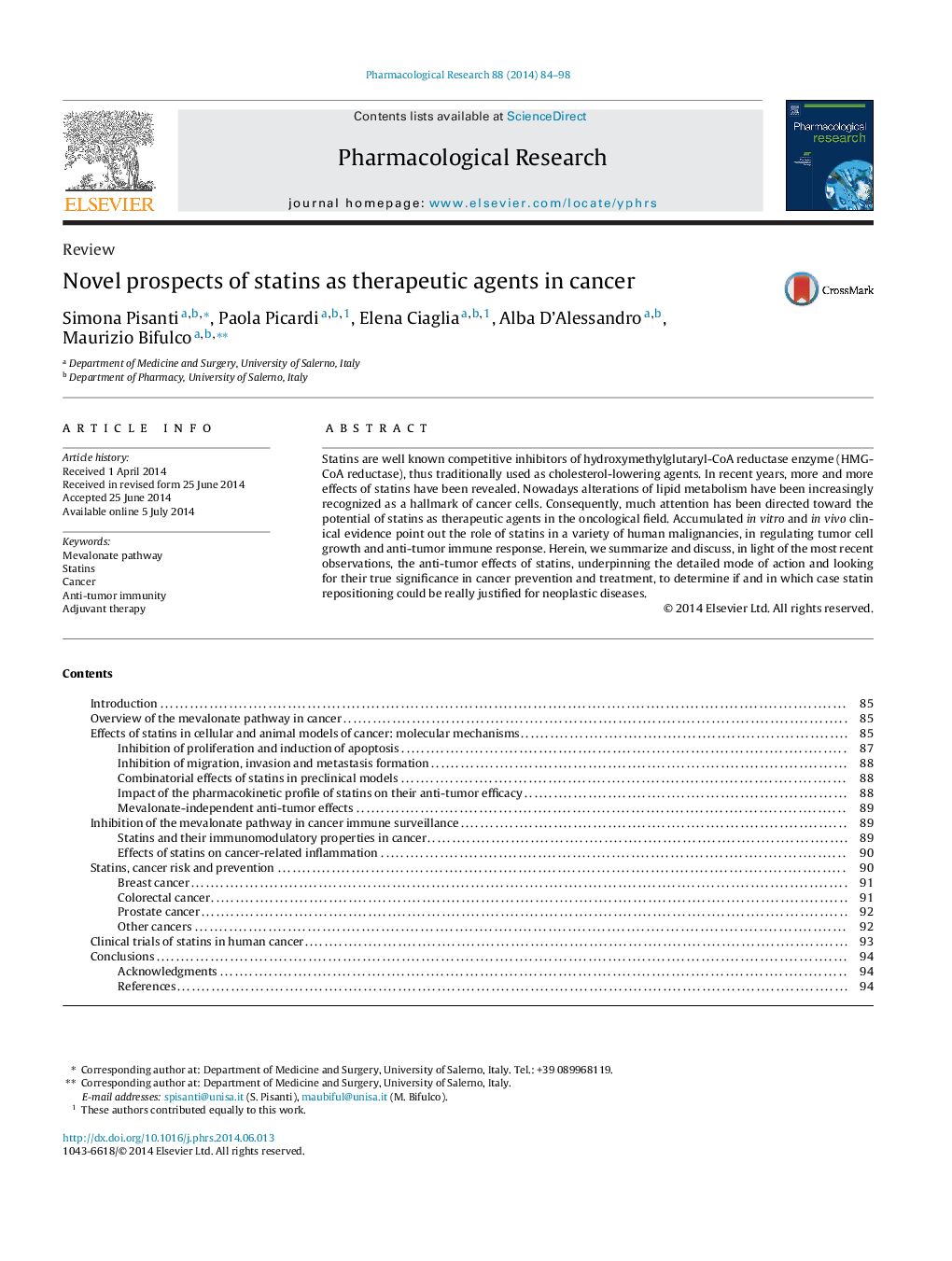| Article ID | Journal | Published Year | Pages | File Type |
|---|---|---|---|---|
| 2561963 | Pharmacological Research | 2014 | 15 Pages |
Statins are well known competitive inhibitors of hydroxymethylglutaryl-CoA reductase enzyme (HMG-CoA reductase), thus traditionally used as cholesterol-lowering agents. In recent years, more and more effects of statins have been revealed. Nowadays alterations of lipid metabolism have been increasingly recognized as a hallmark of cancer cells. Consequently, much attention has been directed toward the potential of statins as therapeutic agents in the oncological field. Accumulated in vitro and in vivo clinical evidence point out the role of statins in a variety of human malignancies, in regulating tumor cell growth and anti-tumor immune response. Herein, we summarize and discuss, in light of the most recent observations, the anti-tumor effects of statins, underpinning the detailed mode of action and looking for their true significance in cancer prevention and treatment, to determine if and in which case statin repositioning could be really justified for neoplastic diseases.
Graphical abstractFigure optionsDownload full-size imageDownload high-quality image (164 K)Download as PowerPoint slide
